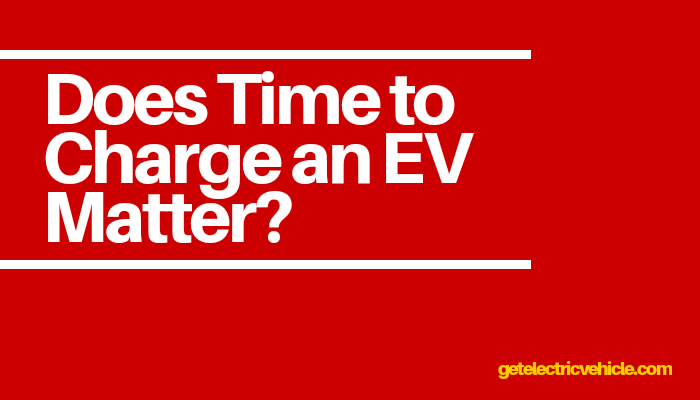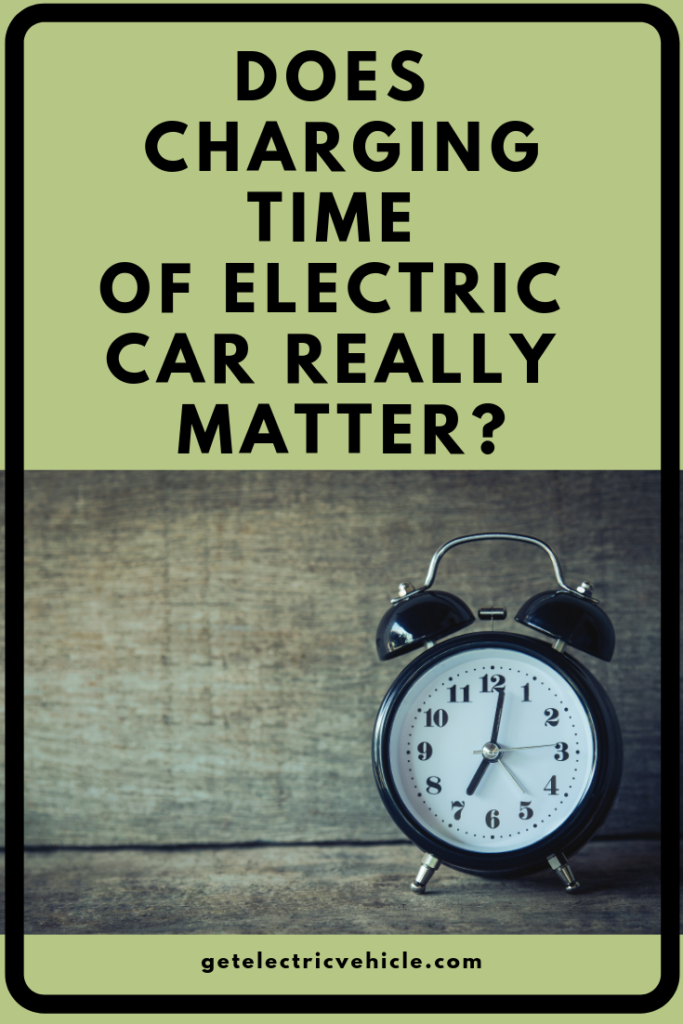
How long does it take to charge an electric car? It has always been a concern that how long to get an Electric Vehicle battery charged.
The charging time of an electric car depends on many factors – the type of battery, type of charger, etc.
A battery of 75 kWh capacity can be fully charged in 8 hours using a level 2 charger of a maximum rate of 11.5 kW.
Following table will give you an insight on how long does it take to charge an EV
| Model | Battery Capacity | Charge Time (Level 1 Charger) | Charge Time (Level 2 Charger) | Range (miles) |
| Tesla Model 3 Long-range | 75 kWh | 28 hours | 8 hours | 310 |
| Model S Long-range | 100 kWh | 53 hours | 12 hours | 370 |
| Model X Long-range | 100 kWh | 65 hours | 13 hours | 325 |
| Model Y | 75 kWh | 61 hours | 12 hours | 300 |
This is the case of normal Level 1 and Level 2 chargers. But there are fast charging stations that can fill your battery to 80% in 10-30 minutes!
Fuel filling of conventional vehicle and bill payment hardly takes 5 minutes. Fuel will be always provided by public petrol bunks.
Do you know that the electric car charging stations outnumbered gas stations in Britain?
Accessibility and fastness of fuel filling make conventional vehicles superior to an electric vehicle. Electric vehicle charging is as important as fuel filling in a conventional vehicle.
Passengers would not wait for a long to get their vehicle battery charged. Charging time impacts the acceptance of electric vehicles in the automotive market.
The average distance driven by a person in a day is around 45 kilometers. So it’s not necessary to charge the electric vehicles daily!
First let’s see different charging techniques and their characteristics.

Types of charging facilities
There are three types of charging facilities available for an electric vehicle – Home based charging, charging at parking locations, and public charging stations.
More details are published in another post: Electric vehicle charging: All you must know!
#1 Home Charging Stations
Home charging stations, as their name indicate, generally install at home and the owner can charge the electric vehicle by plugging in the vehicle to it.
Different manufacturers provide various charging options in the home charging system. The normal charging option takes around 7-10 hours to charge the battery to its full capacity (SoC from 40 to 90%).
The time of charge depends on the battery capacity and type of the charger used. For example, Nissan Leaf charger specifies 0 to 100 percent charge in 9.5 hours for 30kWh battery and upgraded 30A charger recharges the battery in 5.5 hours.
Home charging stations are the most used one in electric vehicle recharging as the average trip of a person never goes beyond 100 km, which is far less than the maximum range of the electric vehicle.
An electric vehicle can be plugged into home charging stations once the vehicle returns and parked at home.
Usually charging of electric vehicles happen in night. Electric vehicle charging reduces the quality of power since they are relatively large loads.
Charging at parking locations
Charging at parking locations is another electric vehicle charging facility. Business institutions, public parking lots, employees parking places can have equipped with charging options.
Controlled charging would be possible to the vehicles at these locations with either a minimal price or free of cost.
Charging at public place
Fast charging stations that usually installed at public places use DC charging (fast charging) and provide near 100 km of range in 10-30 minutes. These charging stations are installed at locations where passengers take a break on a long trip.
Read more about charging stations
Battery swapping
Battery swapping is another technique proposed to reduce the charging time. In this method battery of the vehicle is replaced with another fully charged battery pack from battery swapping stations.
It would take less than 5 minutes to do the work. But the owner of the car does not own the battery in this case. Infrastructure for battery swapping stations needs large investment.
As far as the safety is concerned, the high voltage batteries should be connected to the vehicle with proper connectors.
The future of swapping stations might not be that promising. Tesla motors planned to start battery swapping stations and then stopped the project and focus on fast charging stations now.
How long does it take to charge an electric car? Does charging time really matter?
Let’s conclude. As far as electric vehicles are concerned charging time is not a serious drawback for vehicles that run for shorter distances.
Charging equipment at home and parking lots keep vehicle battery charged for short-distance travel that most of the passengers do every day.
Since break requires long trips which range more than 150 kilometers, fast-charging stations at proper locations help to get the vehicle energized.
Battery technologies and techniques to reduce charging time is still in focus of vehicle manufacturers.
Did you read the interesting article: the future electric cars charges in 3 minutes!
Conclusion
Time to charge electric car batteries reduces with the latest technologies such as fast charging. Home-based charging stations take longer to charge the battery of electric vehicles.
the time to charge electric vehicle becomes less critical factor now. Its always necessary to have a break during long trips. The fast-charging stations help you out to charge the battery to 80% in around 10-30 minutes.
Do you like the article about electric vehicle charging time?
Consider sharing the post with your friends. And follow us for more updates!
You may also like